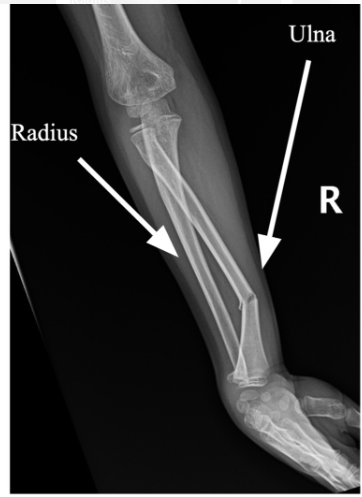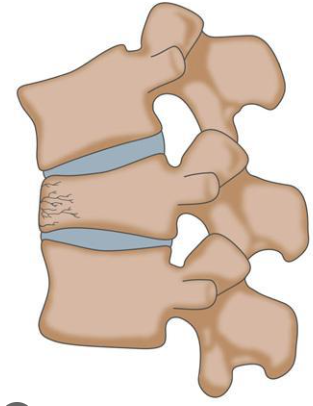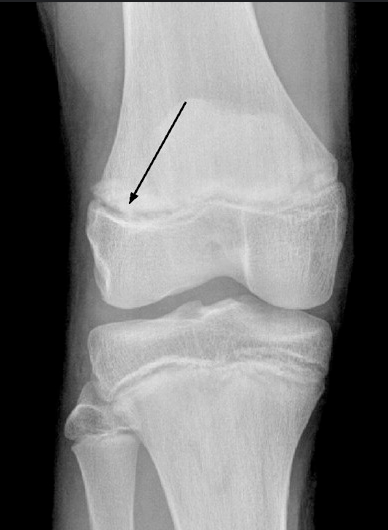Bone Diseases
1/49
Earn XP
Description and Tags
A&P 1
Name | Mastery | Learn | Test | Matching | Spaced |
|---|
No study sessions yet.
50 Terms
Rickets
“soft bones” in children due to low amounts of Hydroxyapatite.
Osteomalacia
“soft bones” in adults due to low amounts of calcium salts.
Osteogenesis Imperfecta
“brittle bone disease” caused by low to absent amounts of collagen concentration in the bones.
known to have blue-grey sclerae
Hypercalcemia
high calcium levels in the blood due to increased osteoclast activity. It can lead to brittle bones kidney stones.
Hypocalcemia
low levels of calcium in the blood, which can affect nerve transmission.
Achondroplasia
most common form of dwarfism. Disproportionately short limbs due to premature fusing of the epiphyseal plate.
Pituitary Dwarfism
a condition due to inadequate growth hormone production, leading to shorter stature and normal body proportions.
Transverse Fracture
where the fracture line runs perpendicular to the long axis of the bone

Spiral Fracture
a break that spirals around the bone

Displaced Fracture
when a bone breaks and the broken ends are no longer aligned properly

compression fracture
a type of fracture where the bone is crushed or collapses, often due to compressive forces

displaced compound fracture
a break in the bone where the broken ends protrude through the skin and are misaligned.

comminuted fracture
bone is broken in fragments or shattered

epiphyseal fracture
fracture that extends into the epiphyseal plate of a growing bone, potentially affecting growth.

epiphyseal fracture
what fracture could lead to Scoliosis?
comminuted fracture
what fracture could lead to kyphosis?
bone remodeling by osteoclast
what is the last stage of bone repair?
Fracture hematoma
what is the first stage of bone repair?
Callus formation. internal with spongy bone and External with cartilage
what is the second stage of bone repair?
Callus are replaced with bone.
what is the third stage of bone repair?
potts fracture
Fractures at the distal end of the Tibia/Fibula
Colles fracture
Fractures at the distal radius.
Synarthrosis
not movable joints
Amphiarthrosis
slightly movable
Diarthrosis
freely movable also know as Synovial joints
Fontanels
membranous areas between the bones of the skull in infants, allowing for brain growth and skull expansion.
Osteopenia
Osteoporosis
when osteoclast activity exceeds osteoblast activity, leading to net bone loss and decreased bone density.
Osteoarthritis
greater in women
occurs at the distal phalanges
degenerative joint disease where the articular cartilage, which cushions the ends of bones in a joint, wears away.
potentially leading to the formation of bone spurs (osteophytes)
Rheumatoid arthritis
autoimmune disorder greater in women.
When the synovial membrane thickens and erodes the articular cartilage.
“swan neck fingers”
Osteomyelitis
bone infection, usually caused by bacteria, that can spread from a nearby tissue or through the bloodstream.
commonly complication in diabetic foot infections
Lyme Disease
bulls-eye moving rash as a result of a tick bite.
it never stops, as the bones constantly remodel themselves to adapt the stresses placed on them.
When bone remodeling ever stop?
OB > OC
in kids OB to OC
OB = OC
in adults OB to OC
OB < OC
in elderly OB to OC
Sex hormones, but estrogen causes it to occur faster.
What trigger the epiphyseal plate closure?
Growth Hormone, Thyroxine, and sex hormones
what hormone is responsible for increasing OB activity?
PTH
what hormone is responsible for increasing OC activity?
Calcitriol and PTH
what hormone is responsible for increasing Ca levels in the blood?
Calcitonin
what hormone is responsible for decreasing Ca levels in the blood?
skin makes vitamin D, which signal the kidney to make Calcitriol which in turn tells the small intestines to increase Ca absorption.
How does 45 minutes in the sun help with Ca absorption?
Synovia membrane
makes synovial fluid to lubricate the joint
Bursa
pouch filled with synovial fluid to reduce friction
Fat Pads
adipose CT that fills space to cushions the joint
Meniscus
C-shaped cartilage in the knee joint. Located on the articular surface they act a shock absorbers to stabilize the joint.
Articular capsule
A double-layered connective tissue structure that surrounds synovial joints. Outer fibrous layer and inner synovial memebrane
chondrocytes
What type of cells are a the epiphyseal plate of a child?
Ligaments
what holds bones together in a movable joint?
Tendon
what holds bones to muscle together in a movable joint?